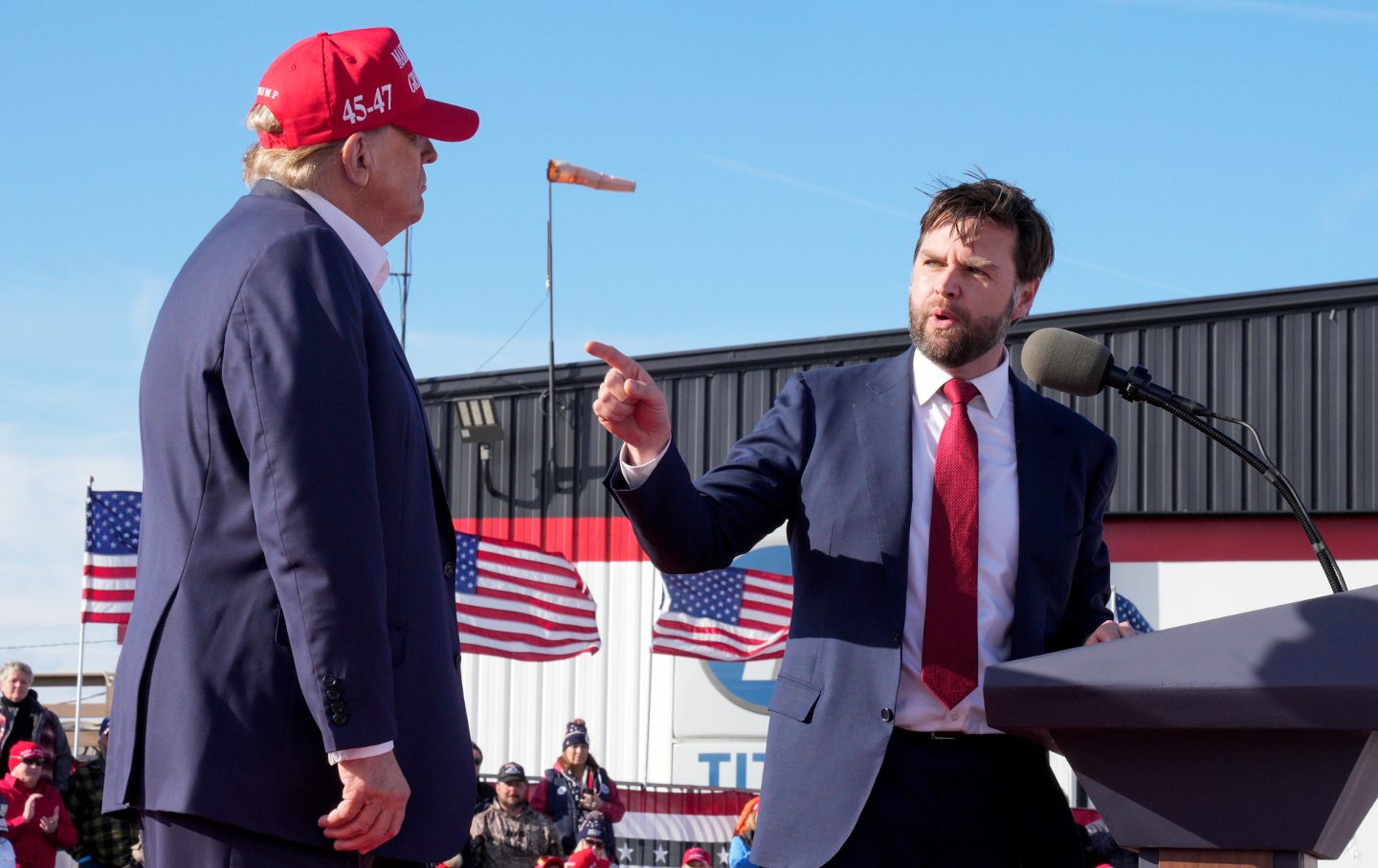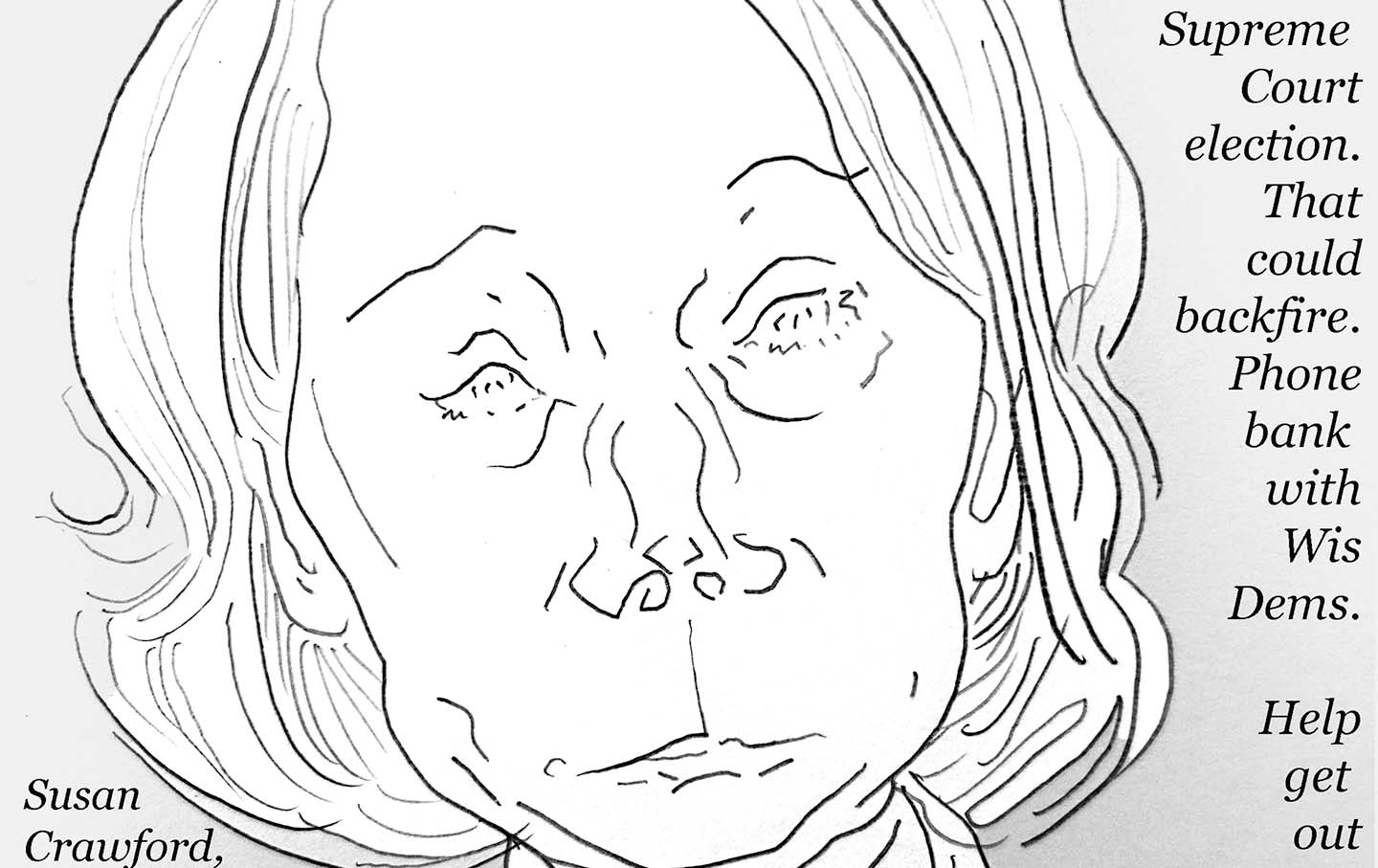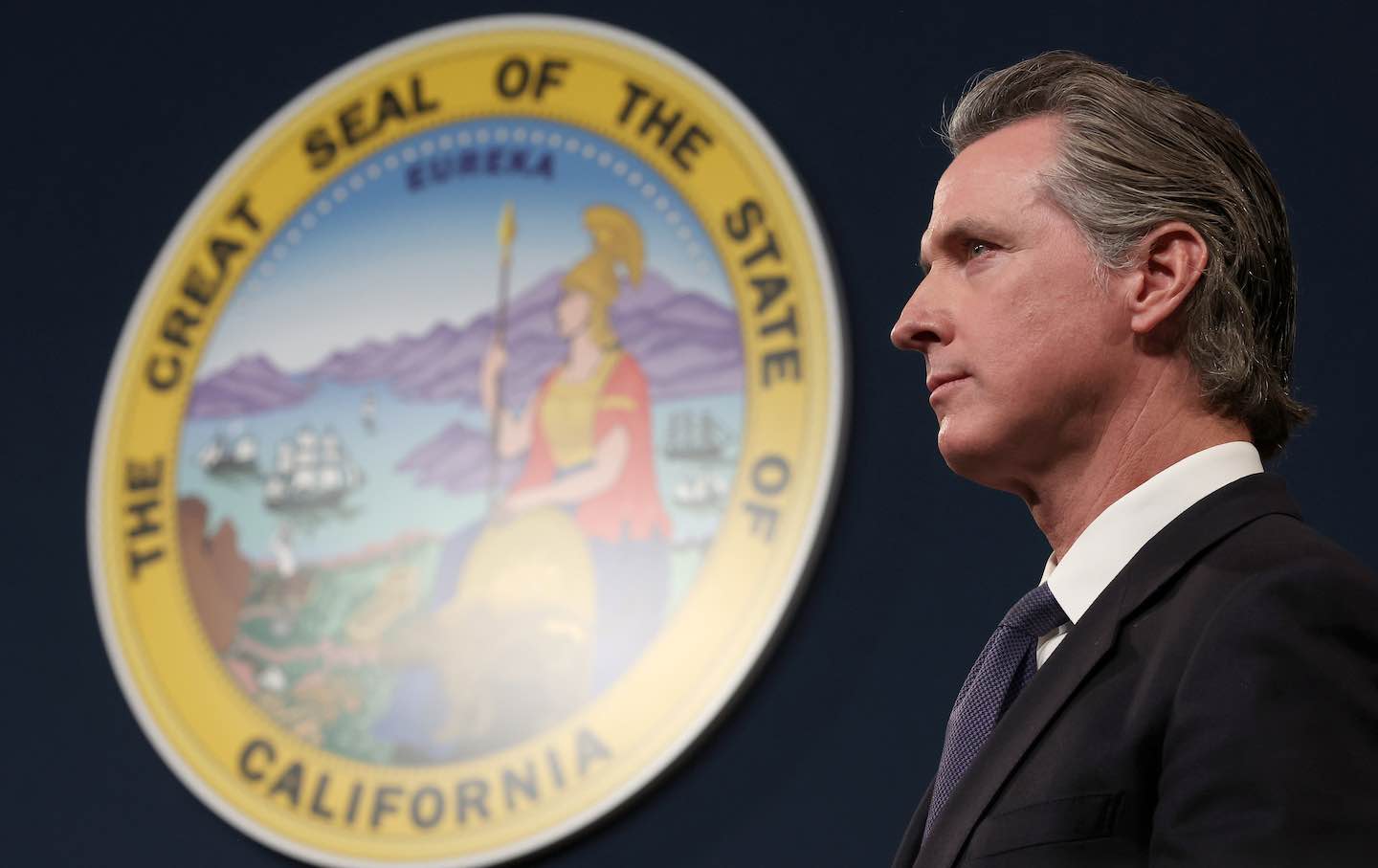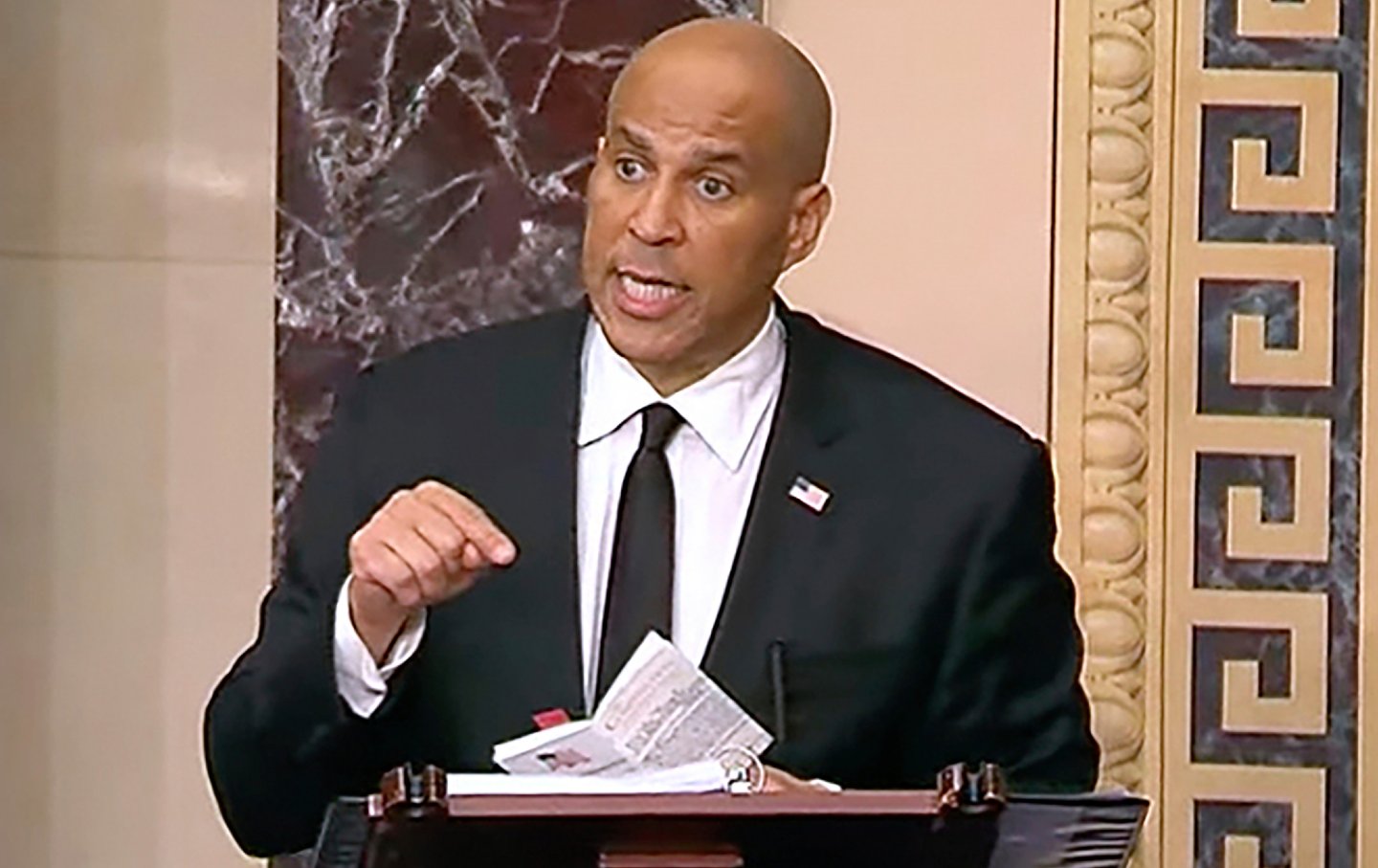Joe Biden Was Never As Tough on Trump as J.D. Vance
The man Trump has picked as his vice presidential running mate was once the ultimate Never Trumper.

J.D. Vance and Donald Trump at a campaign rally, March 16, 2024, in Vandalia, Ohio.
(Jeff Dean / AP)Joe Biden has never, in public at least, spoken quite so harshly about Donald Trump as has J.D. Vance.
Trump chose the junior senator from Ohio on Monday as his vice presidential running mate on the 2024 Republican ticket. But not all that many years ago, Vance was a fierce critic of Trump’s. Maybe even the fiercest.
“I’m a Never Trump guy,” Vance announced in the fall of 2016, when it seemed like Democrat Hillary Clinton would probably win the presidency. He wasn’t alone. There were plenty of Republicans who were still objecting to Trump in those days. But Vance turned the “Never Trump” volume up to 11, referring to the Republican nominee as “an idiot.”
Few critics of Trump, and Trumpism, were more visceral than Vance was in 2016.
In an article published by The Atlantic in July of that year, Vance, who had famously written about addiction in his best-selling book, Hillbilly Elegy: A Memoir of a Family and a Culture in Crisis, described Trump as“cultural heroin.” That piece was headlined “Opioid of the Masses” and it argued, “To many, Donald Trump feels good, but he can’t fix America’s growing social and cultural crisis, and the eventual comedown will be harsh.”
In an August 2016 interview with NPR, Vance, who had by then positioned himself as something of a spokesman for rural voters who felt neglected by both major parties, rejected Trump’s cynical form of billionaire populism. “I think he’s noxious and is leading the white working class to a very dark place,” he warned.
That wasn’t even J.D.’s toughest take. As Trump was competing for the 2016 Republican nomination Vance wrote in a leaked text message, “I go back and forth between thinking Trump is a cynical asshole like Nixon who wouldn’t be that bad (and might even prove useful) or that he’s America’s Hitler.”
After an attempt was made on the former president’s life at a rally in Butler, Pennsylvania, on Saturday, many Republicans rushed to suggest that Democrats had incited Trump’s would-be assassin with their criticism of the 46th president. Vance was at the front of the pack, declaring within hours of the shooting,
Today is not just some isolated incident. The central premise of the Biden campaign is that President Donald Trump is an authoritarian fascist who must be stopped at all costs. That rhetoric led directly to President Trump’s attempted assassination.
There’s no question that Biden’s campaign has said tough things about Trump. This year, after Trump reposted a reference to “the creation of a unified Reich,” Biden did express concern, saying, “This is Hitler’s language, not America’s.”
But the president never wondered aloud about whether Trump might actually be “America’s Hitler.” Nor has Biden ever equated Trump with heroin and addictive opioids. J.D. Vance did both of those things.
So how did Vance become Trump’s running mate? He has essentially been campaigning for the job for years, in one of the most cynical exercises in American political history.
A corporate lawyer and venture capitalist who had achieved fame for a book that purported to reveal the true story of working-class people in rural America—despite the fact that its author had grown up in a midsize city, graduated from Yale Law School, and spent much of his adult life cavorting with billionaires in northern California—Vance returned to his native Ohio only in 2017.
He arrived with political ambitions and quickly began positioning himself as Trump’s “mini-me”: a millionaire populist who liked making the sort of crudely racist and xenophobic pronouncements that he once condemned his political benefactor for uttering.
It was a pathetic exercise in precisely the sort of political grasping that Vance has formerly claimed to despise. And it got him nowhere in the initial stages of his campaign for the Senate.
Ohio Republicans showed little interest in Vance’s bid for their party’s nod. Even after several years of working the circuit of county party dinners and conservative gatherings from Chillicothe to Ashtabula, and even after his former boss, billionaire Peter Thiel, poured more than $10 million into an advertising campaign to pump up his flailing candidacy, Vance was going nowhere. Three weeks before the May 3, 2022, primary, he was polling at just 10 percent, languishing in fifth place among the Republican competition. Despite his celebrity, despite Thiel’s big money, Vance seemed doomed.
But then, on April 15, Trump endorsed Vance, the man who had once referred to the former reality-TV star as “a total fraud” and, potentially, “America’s Hitler.” Three other Ohio candidates were begging for Trump’s endorsement, but Vance beat them out by doing what Trump loves most—groveling and repenting. He scrubbed his Twitter account—deleting anti-Trump messages like the one that declared, “In 4 years, I hope people remember that it was those of us who empathized with Trump’s voters who fought him the most aggressively”—and went on Fox to expressly apologize for offending the dear leader.
Popular
“swipe left below to view more authors”Swipe →The contrition tour satisfied Trump. It didn’t matter that the former president barely knew the candidate he was endorsing, or that he would eventually flub his choice’s name when he told a rally crowd in Ohio, “We’ve endorsed—J.P., right? J.D. Mandel, and he’s doing great.”
Josh Mandel, the former Ohio state treasurer who was the front-runner in the race at the time that Trump made his endorsement, had tried everything to win the former president’s favor. And for good reason. After Trump chose Vance’s celebrity and sycophancy over Mandel’s experience and more consistent conservative vision, the race turned. Fast, and hard. In a matter of weeks, Vance surged from fifth place to first. He secured the Republican nomination, and six months later he was the US senator from Ohio.
Now he’s the Republican nominee for vice president.
Why? Because J.D. Vance recognized what some Republicans, and many pundits, still don’t get. The Republican Party is no longer “the party of Lincoln,” or even “the party of Reagan.” It is no longer even a political party in any conventional sense. It’s a subsidiary of the Trump Organization—a cult of personality that welcomes groveling heretics into the fold. As long as they are willing to renounce their former faith and pledge allegiance to the Party of Trump.








